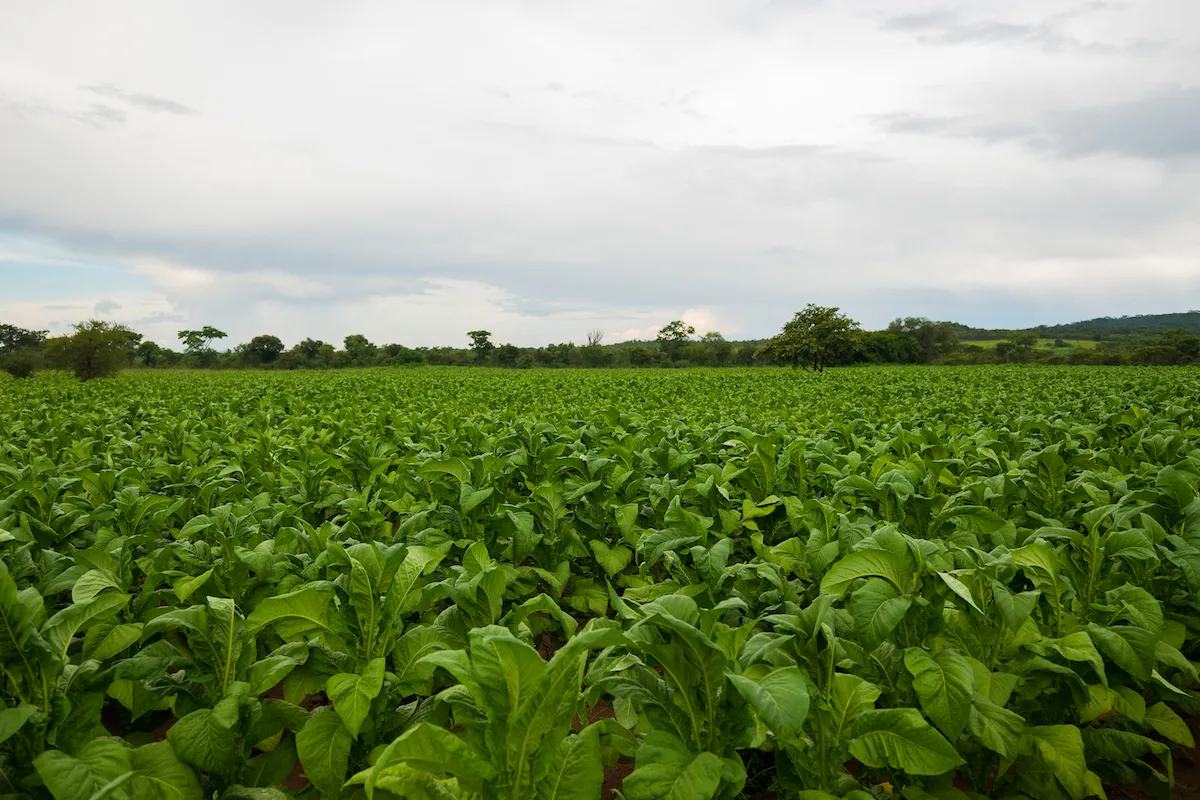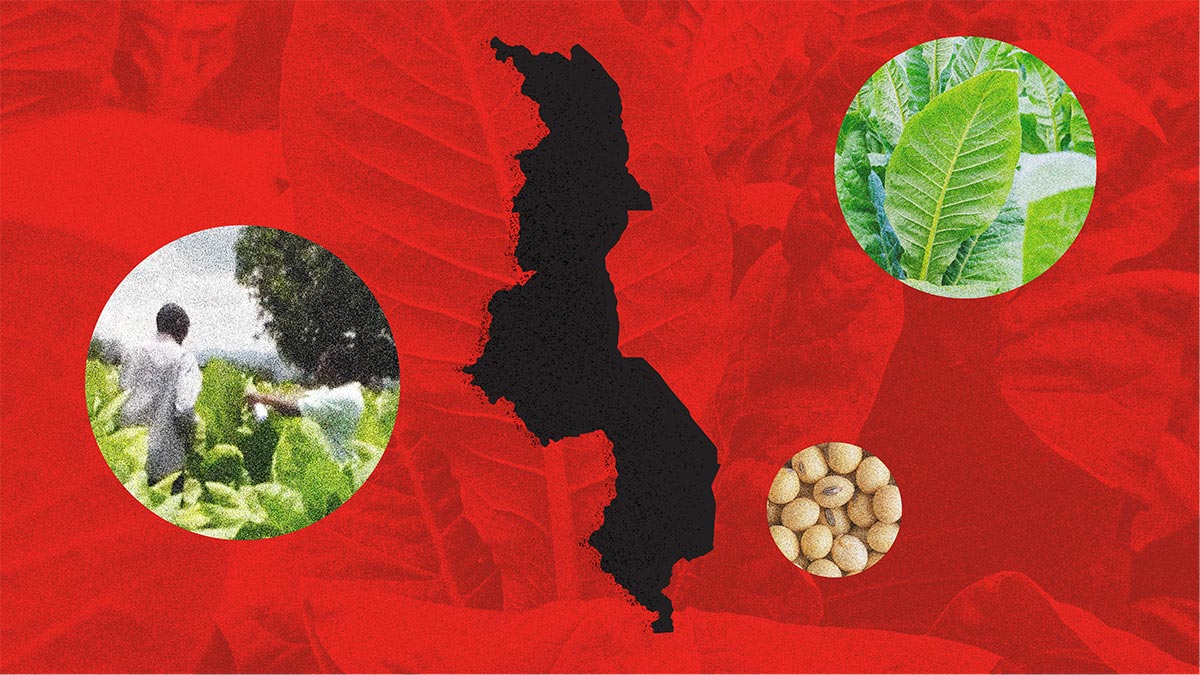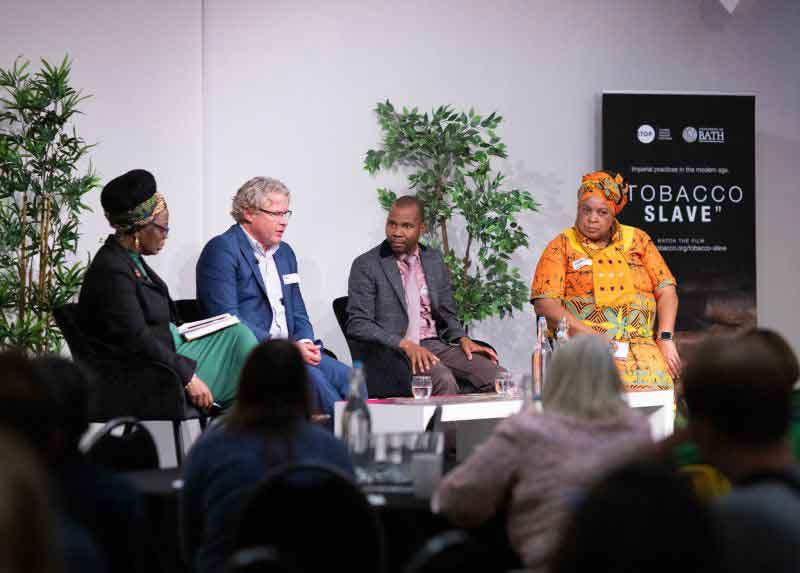- Resources
- News
-
-
Get Email Updates
Sign up for STOP's emails and never miss an update on our latest work and the tobacco industry's activity.
-
Get Funding
Ready to tackle industry interference? You could be eligible for a grant.
-
Share a Tip
Do you have information on tobacco industry misconduct in your country? Let us know.
-
Get Email Updates
Inequity
January 29, 2020

Eliminating Child Labour in Tobacco Growing (ECLT) Foundation Added to Global List of Tobacco Industry Allies
(New York and Bath, United Kingdom, January 29, 2020) — Global tobacco industry watchdog STOP (Stopping Tobacco Organizations and Products) warns that a Swiss-based front group will continue to seek out partners for projects that fail to eliminate child labor in international tobacco supply chains. STOP urges governments and UN agencies to reject these approaches.
The Eliminating Child Labour in Tobacco Growing (ECLT) Foundation is one of 18 groups newly added to STOP’s growing list of industry allies. It is classified as a front group, according to rigorous definitions established to identify tobacco industry allies, as it is among the few prominent international front groups to be fully funded by the tobacco industry. ECLT is a Swiss-based non-profit organization that describes itself as “independent” and a “global leader in eliminating child labor.” In the two decades since ECLT’s formation, it has helped the tobacco industry to engage with governments and UN agencies but child labor in tobacco growing has not been significantly reduced in the countries where it works.
“ECLT is a classic example of how tobacco-funded projects do not reduce the harms caused by the tobacco industry, while enabling tobacco companies to benefit from undeserved credit and influence,”
said Mary Assunta, a Partner in STOP and Head of Global Research and Advocacy at GGTC. “This applies not only to ineffective youth smoking prevention programs but also to efforts to reform the industry’s worst predatory business practices, including the exploitation of child labor in tobacco growing. Governments shouldn’t be taken in – the tobacco industry itself is the root cause of these problems.”
Background
In early November 2019, the International Labour Organization (ILO)—the UN agency tackling social justice and labor exploitation—publicly decided to reject funding from ECLT and other tobacco companies. ILO had not renewed its contracts with ECLT when they expired in 2018. In comments to media, ECLT claimed that the ILO had left the door open to future partnerships and in a public statement announced that ILO had reaffirmed its engagement in the tobacco sector and claimed that public-private partnerships between the tobacco industry and the ILO had been successful. In reality, ECLT has not been effective in ending child labor.
A brief from STOP uses BAT internal documents from 1998-2002—when ECLT was founded—to conclude that the tobacco company was using ECLT child labor projects in Malawi to improve its reputation. In March 2017, the ILO disclosed that it had received more than US$5.3 million from ECLT since 2002. ILO did not provide details on how this funding was spent, but ECLT claimed it was working with ILO to reduce child labor practices in Malawi, Uganda and Tanzania.
Researchers working with STOP found that the ILO served as an observer to ECLT’s board, and the two entities engaged in three separate initiatives:
- The first agreement between ILO and ECLT, from 2002 to 2010, provided research funding on child labor practices in Indonesia, the Dominican Republic, East Africa, and funding for efforts to eliminate child labor in Tanzania.
- The second agreement, from 2011 to 2015, focused on child labor in Malawi.
- The third agreement, from 2015 to 2018, focused on child labor practices in Malawi, Uganda and Tanzania.
Despite these efforts, progress was incremental at best. In 2008, an ECLT report estimated that 63% of the children in tobacco-growing families work in Malawi fields, an increase from 1993, when UNICEF researchers estimated the rate to be 40%. In 2014, towards the end of the second agreement, researchers found that 55% of children in tobacco estates worked as unpaid family members when harvested tobacco was cured. BAT is now facing court action in London linked to exploitative wages and child labor in Malawi.
Additional Background: Tobacco Farming in Africa
Malawi is one of the most tobacco-dependent countries in the world and child labor practices continue in the country’s tobacco fields. Contract farmers cultivating tobacco in Malawi as their main economic livelihoods typically have household incomes well below national poverty thresholds, while independent farmers are typically operating at a loss. Malawian tobacco farmers make an average profit of US$79 per acre, substantially less than the average in the agricultural sector (US$351). The desperate need to control costs to try to generate a profit is the reason why many children end up helping their families in the tobacco fields, missing school to work for free- harming their health and potentially reducing their future prospects.
It’s a situation replicated in many tobacco-growing countries. For example, tobacco is Zimbabwe’s most valuable export, generating US$933.7 million in 2016. Human Rights Watch recently reported on poverty, sickness and child labor associated with tobacco farming in Zimbabwe, and found that tobacco companies were failing to inform farmers about the risk of nicotine poisoning.
In Zambia, growing tobacco is not profitable for most tobacco farmers. Tobacco farmers on contract lose money on the crop and while independent farmers make a small profit per acre, that translates to a loss when farmer labor is added to the calculation.
For more information on the crooked tactics of the tobacco industry, see this report by STOP summarizing the ways that Big Tobacco subverts health policy around the world to continue selling harmful products that kill, on average, eight million people every year.
Please contact the STOP press office for more information or to speak to a STOP spokesperson.
About STOP (Stopping Tobacco Organizations and Products)
STOP is a global tobacco industry watchdog whose mission is to expose the tobacco industry strategies and tactics that undermine public health. STOP is a partnership between The Tobacco Control Research Group at the University of Bath, The Global Center for Good Governance in Tobacco Control, The International Union Against Tuberculosis and Lung Disease (The Union) Department of Tobacco Control and Vital Strategies. Learn more at exposetobacco.org.

